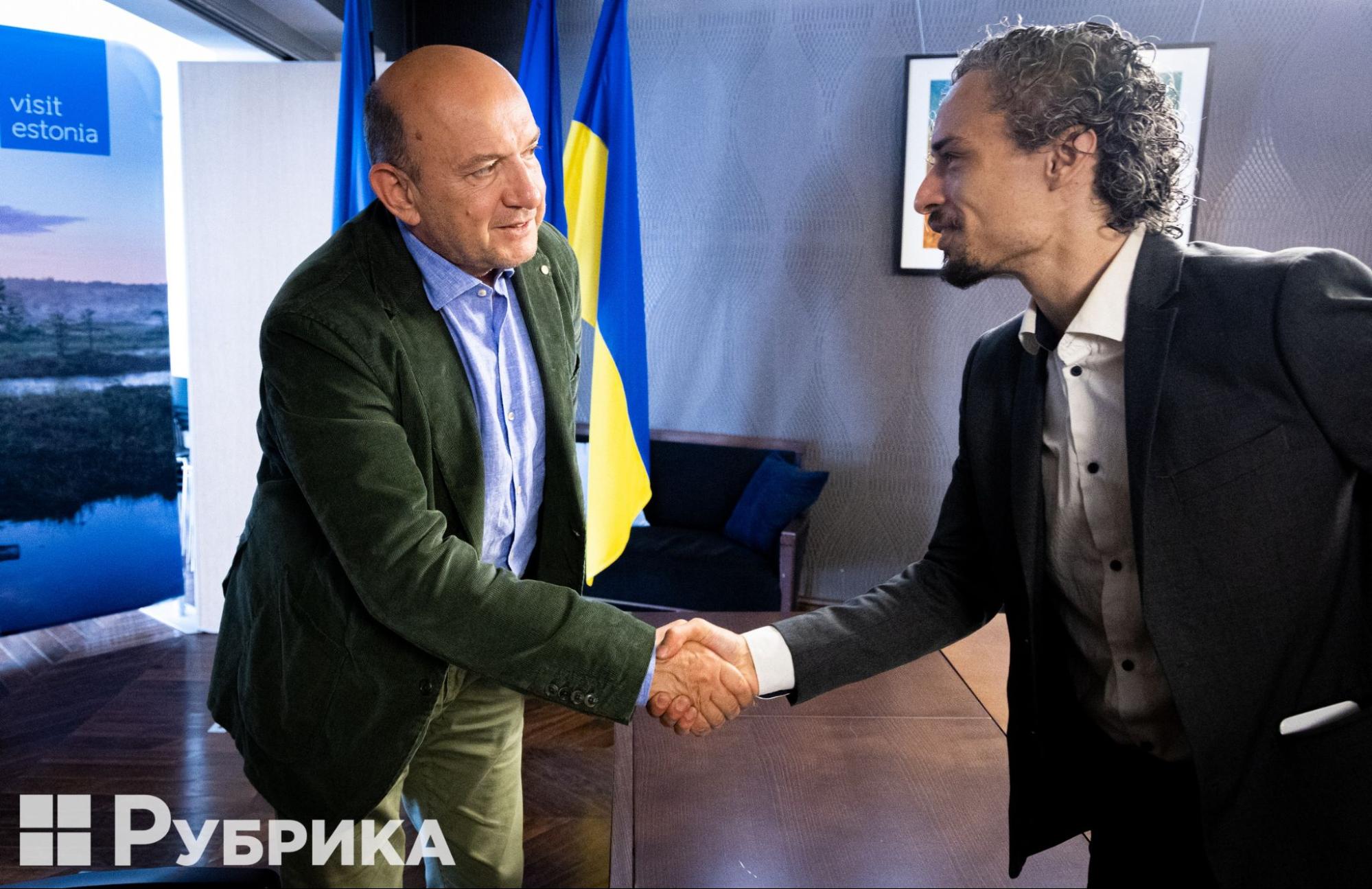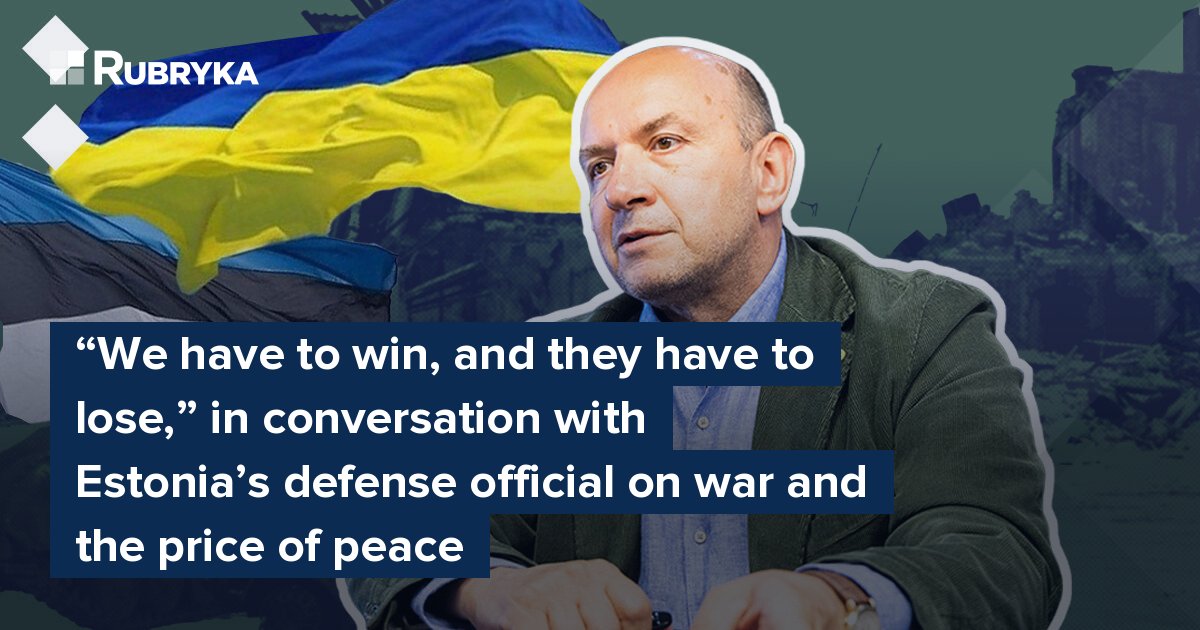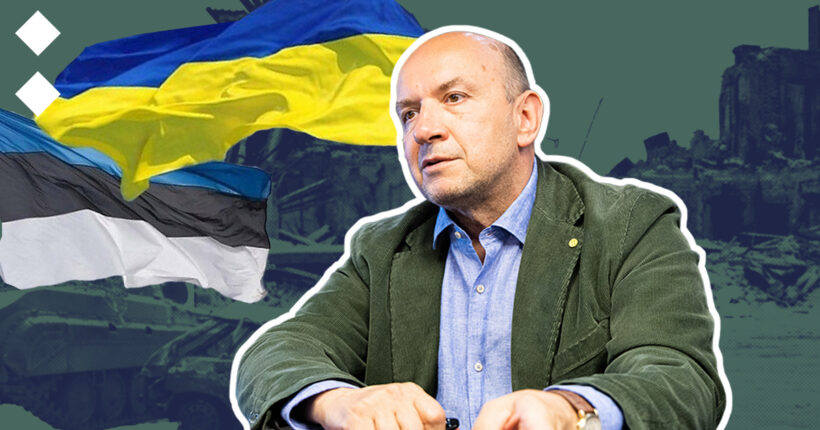
I'd like to discuss the big picture of what Estonia and Ukraine share in looking at this war. Estonia shares Ukraine's pain in that so many people can remember stories of their family members killed by Russia – and also, Estonia is Ukraine's number one supporter by GDP. That's no accident, is it? How is Estonia managing that, is it seen as a burden, or an investment that's worth it on a moral level?
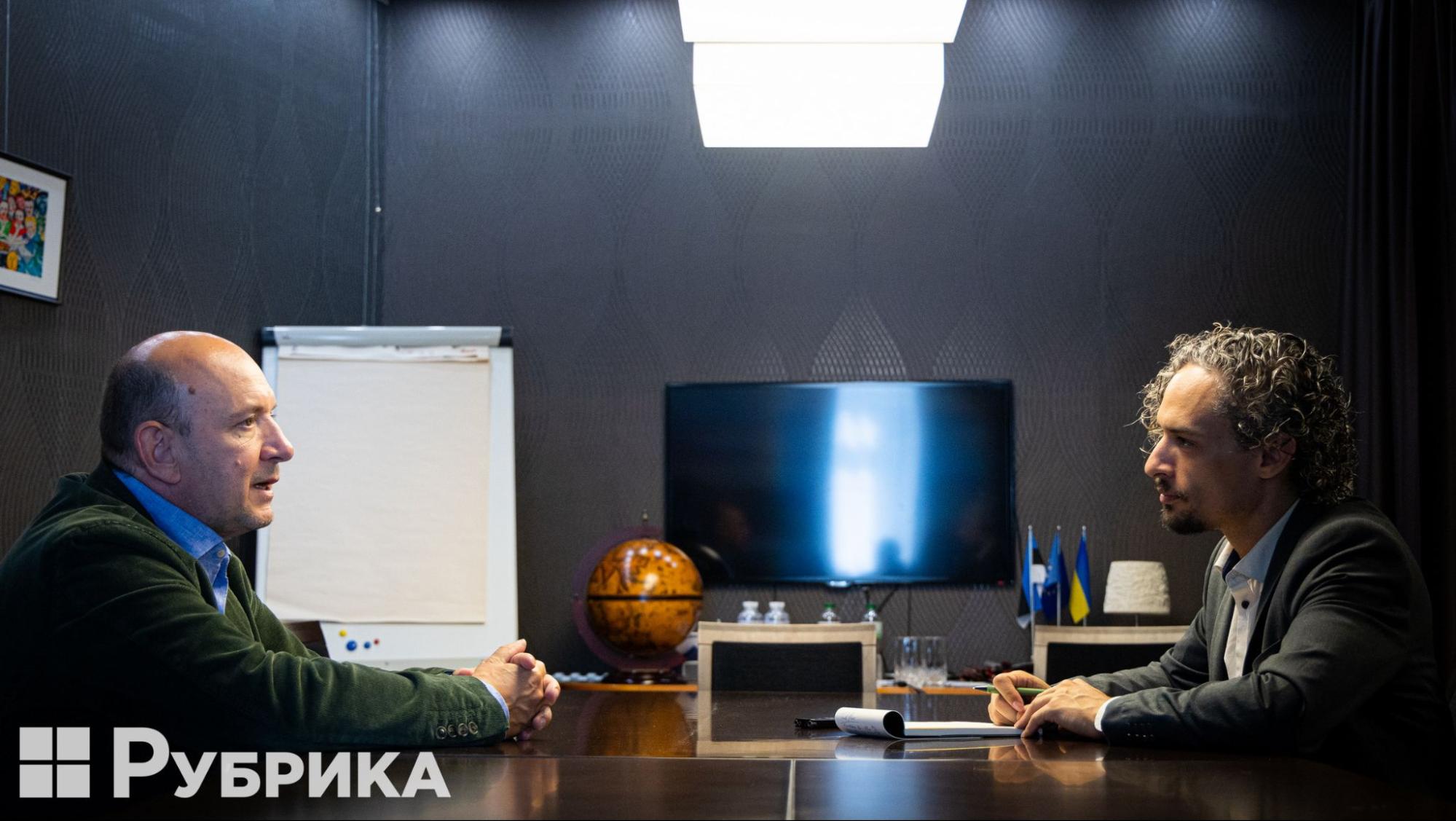
We manage it well, and I was told by the deputy foreign minister, with whom I met today, that Ukraine will never forget the assistance we have offered. But I replied that equally, we will never forget what Ukraine has done – not only for itself, but for the entire Europe – implicitly, for Estonia, as well.
We all wage a struggle against imperialist, aggressive Russia, that has barbarically attacked Ukraine. What is happening in Ukraine is called, in military terms, the "kinetic war" – this actually means that Russia is at war with the entire democratic world. And we're all at war with Russia, from the political-economic point of view. So we must do everything possible for Russia to lose the struggle – for Russia to be defeated.
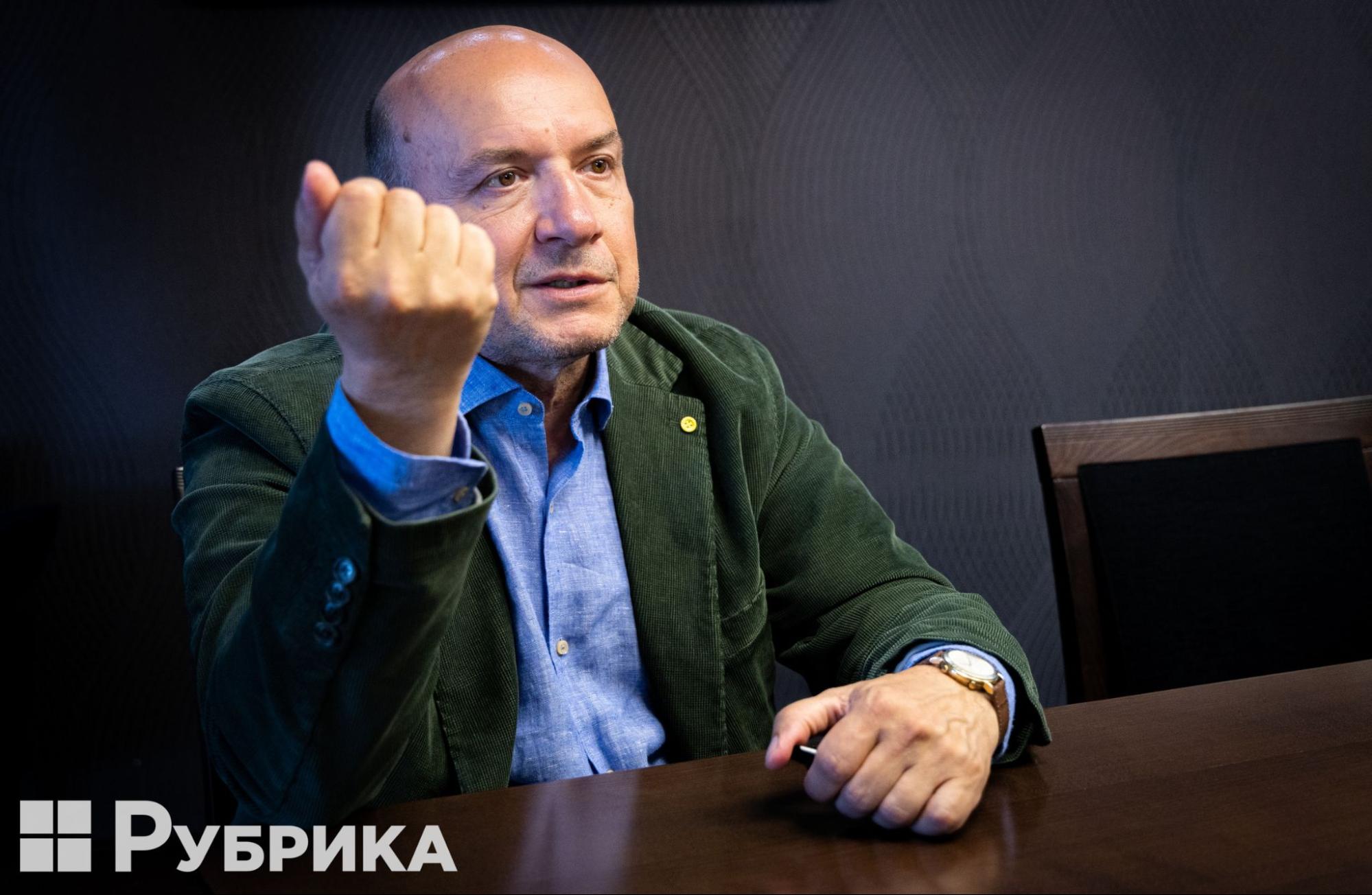
I'm very hopeful this would happen as soon as possible – the entire territory of Ukraine [liberated, – ed.], if not this year, and next year… the sooner, the better. And I hope this counteroffensive of the Ukrainian forces will be successful.
But the liberation of Ukraine is not really the equivalent of Russia's defeat – we must be conscious that even if Ukraine is liberated, the Russians would not say: "Oh, you have kicked us out of Ukraine. Now we are defeated in our giving up, it's the end." This means much more than that. We are going to support Ukraine as long as it takes. But using the same phrase – we must continue as long as it takes with certain measures against Russia, like economic sanctions to limit Russia's ability to gain cash and rebuild its war machine, to limit Russia's ability to gain access to Western technologies and components that are used in its military industry, so that Russia won't be able for many years, to pose a real threat to Ukraine and to the entire Europe. So this is a vision that we should have. And Russia must be conscious that this is our goal.
If it doesn't change its policy, its attitude — and I don't see how they would do that under Putin or a similar leader or similar regime — then we have no other choice. There is no win-win solution. It's only a win-lose solution, and we have to win, and they have to lose. It is as simple as that.
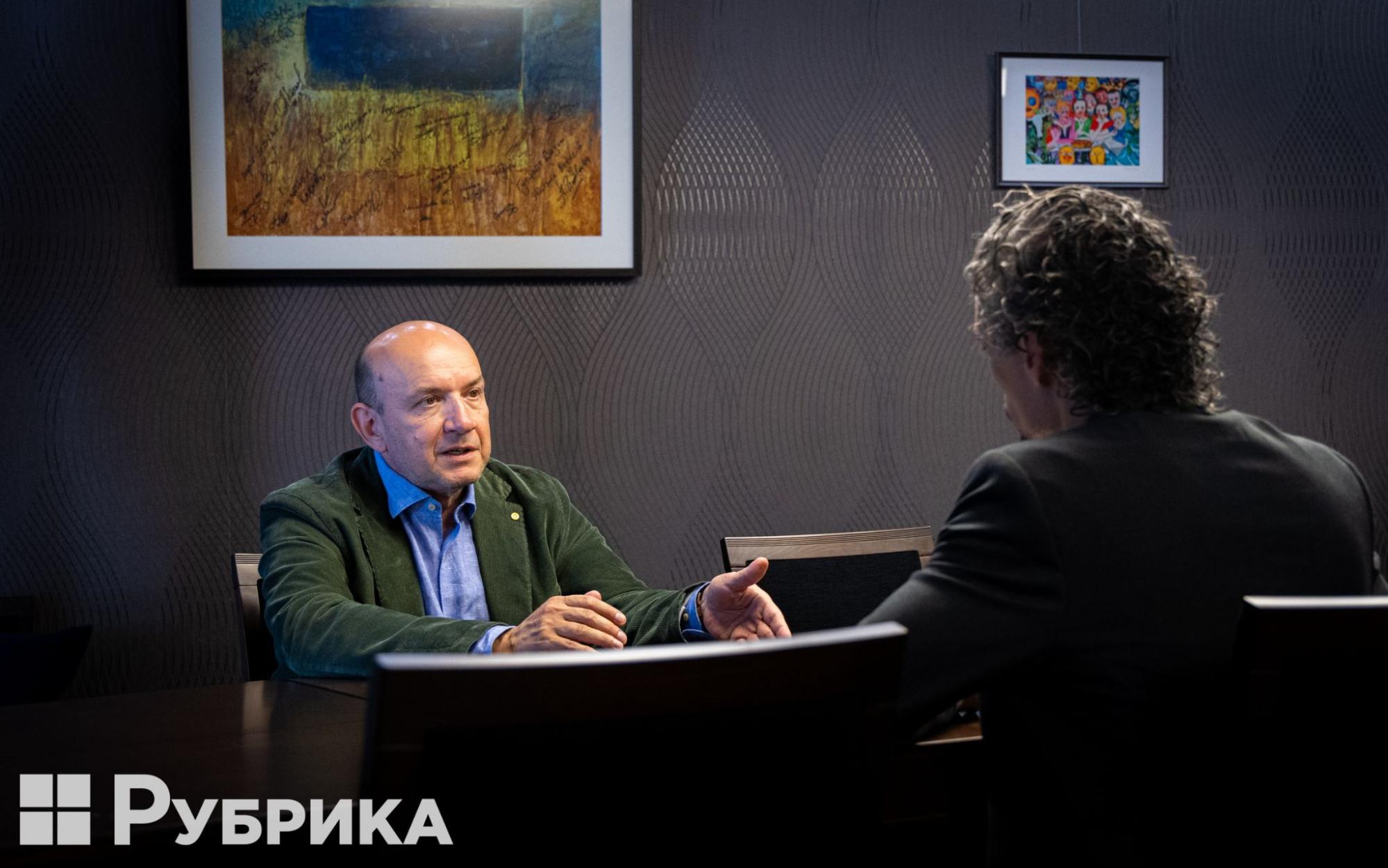
Europe's leaders have supported Ukraine with words and applause that Ukraine is fighting for all of Europe – but clearly, this still hasn't solidified into an invitation to join NATO or the EU.
We are speaking about our future, the future of Europe. And Europe is now clearly limited, with the European Union and NATO. But this is the Europe that we have. These are the boundaries of Europe. Because we're speaking about a political Europe, about a cultural Europe, about a values Europe, that we have an Ukraine must be part of it as long as the Ukrainian people want to be part of it.
We too, in Estonia, for instance, when we made a bid joining the EU and NATO many years ago, it wasn't to be democratic and have Western values because of pleasing somebody else – and just to become a member of an elite club. It was because we felt that this is the way we like to be, and I think the Ukrainian people feel the same. They want to live in a free country, to live in democracy, and to be Western.
If the Russian people have another choice, then it's their choice – what can we do about it? It is for them to decide how they want to live.
On the price of peace
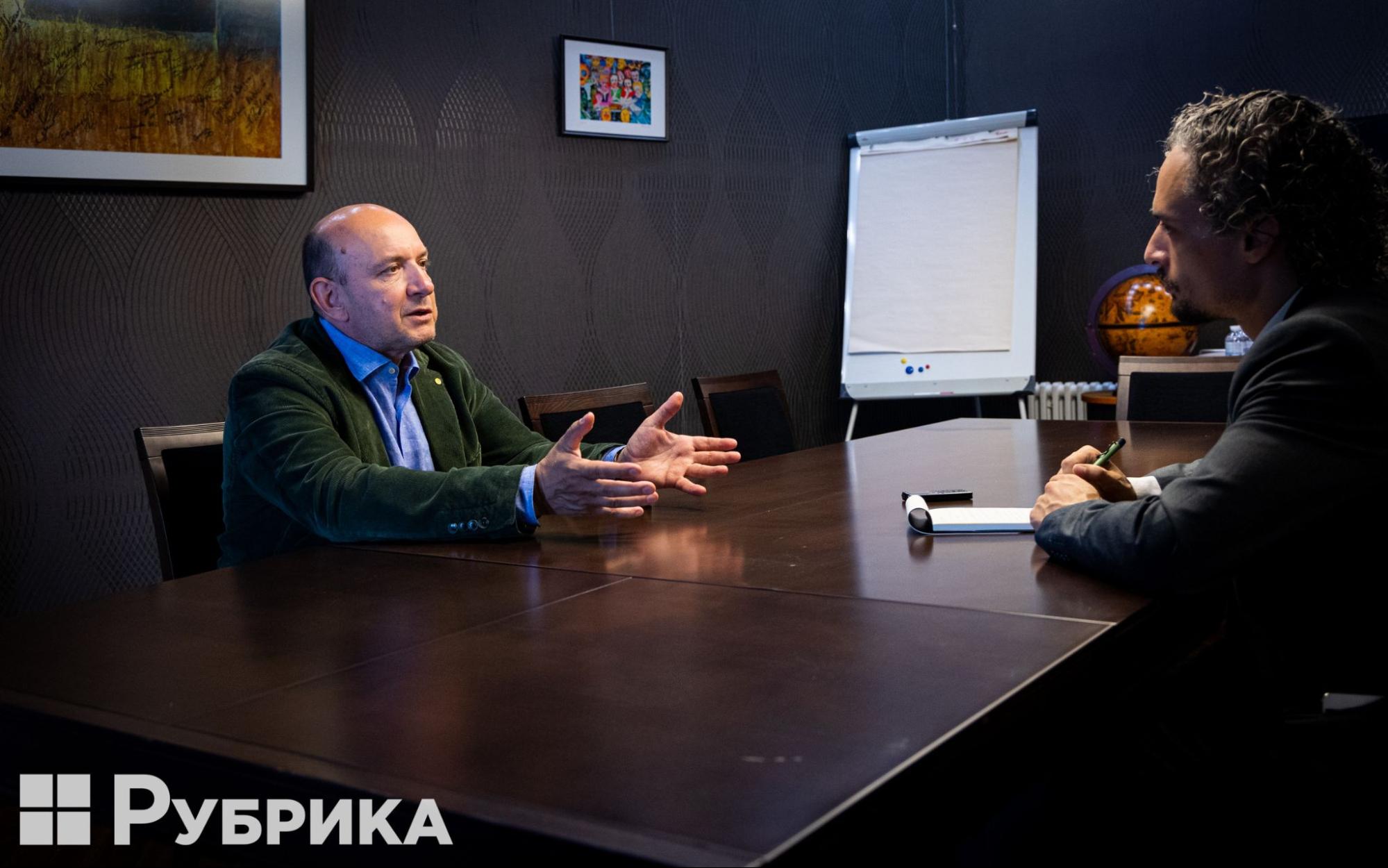
Can there be a price put on peace? Even the most realistic, pragmatic proposals currently under discussion essentially propose that Ukraine should agree to give up some of its territory to Russia – and people whose hometowns happen to be in Donetsk, Mariupol, Luhansk, or Crimea will never return home – and in exchange, Russia would agree to pay a sum of money to Ukraine as reparations. Isn't this just paying a speeding ticket for war crimes, for the crime of aggression?
If Russia really wanted to achieve something along the lines of classical realpolitik, perhaps they could have achieved something last year in March, April, maybe even early May. But not later. After Bucha, after Mariupol… After all that, they crossed the line of no return. And they've done things that cannot be forgotten and forgiven. They have crossed the line to a point at which this aggression has become so criminal, and so costly, that they cannot evade responsibility anymore. And this is Estonia's and Ukraine's policy and the policy of more and more Western countries that Russia must be made responsible for the war crimes. That's one.
With the institution of a special international criminal court that could have responsibility in matters of genocide and the kind. There are thousands, perhaps tens of thousands of files that have been made. What happened yesterday [missile strike of Russia on 27 June 2023 resulting in 13 deaths, – ed.] in Kramatorsk – it's yet another episode of all these Russian crimes. This is indescribable. They have to pay for that.
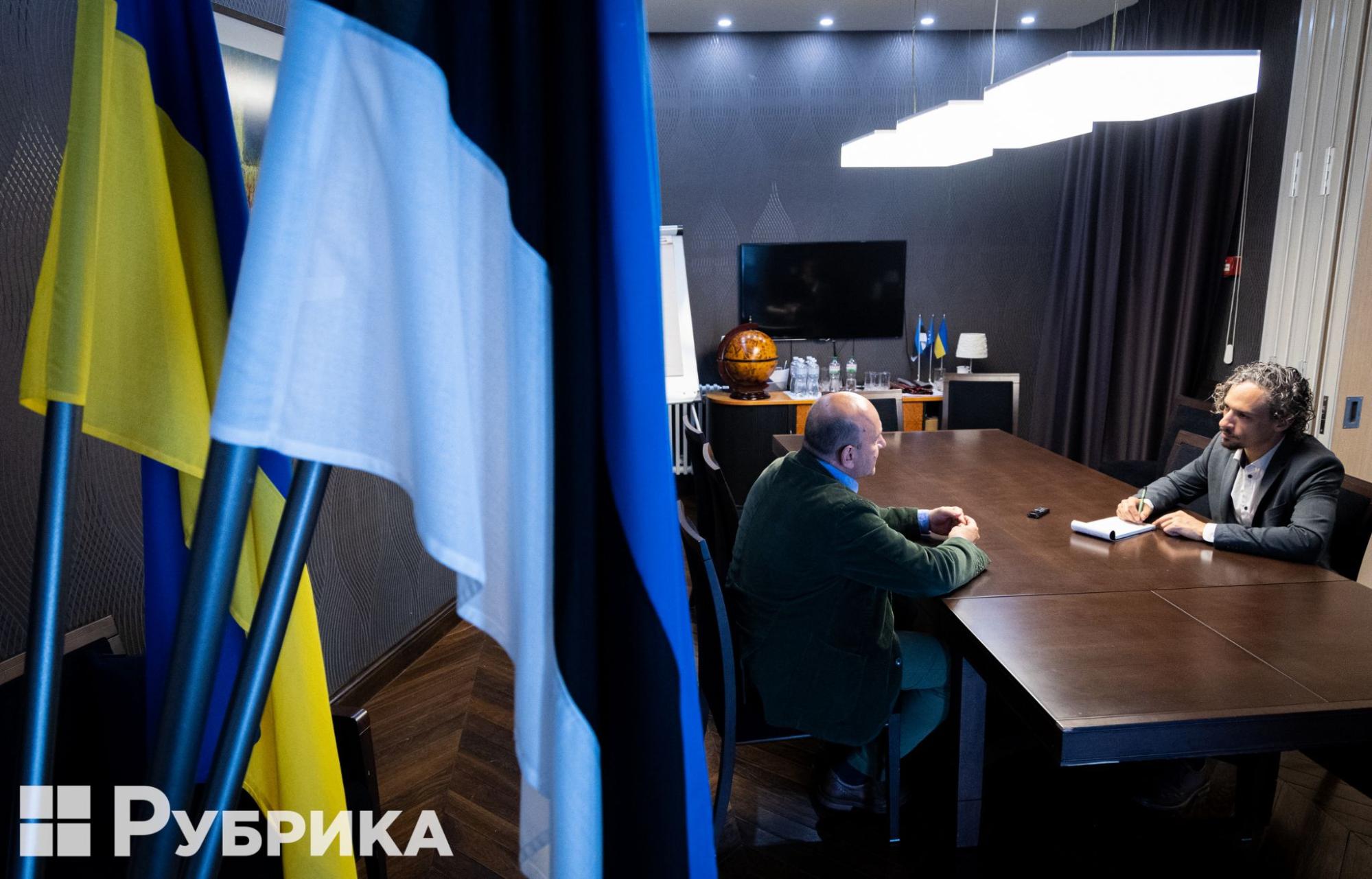
And what are the steps needed to make that happen?
The whole chain from ordinary soldiers, those butchers and killers, whoever they are, the Wagners, and so on — up to the very top, up to Shoigu, Putin, and so on. They all have to be held responsible, they all have names.
The names of the ones from the top to a certain level are very well known. The names of those who are down there, who committed atrocities… perhaps not very many of them are known – but they will be known. Some of them are already being certified. So all of these people will be identified, they have to be prosecuted – even in absentia, if they are not there. And they have to get a sentence.
This is the justice that we make, to the people who are killed, to the people who suffer. This is the least we can do for them.
And if that isn't possible, what is the alternative?
This is what we have to do under international law. Otherwise, if we give up international law, we accept Russia's terms of living in the future — the law of the jungle. And I'm not sure that we want to live like that.
So we have to stick to international law and international law obliges us to do these things. Russia has material responsibility for the damage they have done to Ukraine's infrastructure, to Ukraine's economy. This can be already measured in many hundreds of billions of Euros. They have to pay for this. It's not Europe that has destroyed Ukraine – they have – so they have to pay. And as much as we have frozen, arrested, confiscated Russian property, assets, money in the West, whether of the Russian state or of oligarchs… we have to use them.
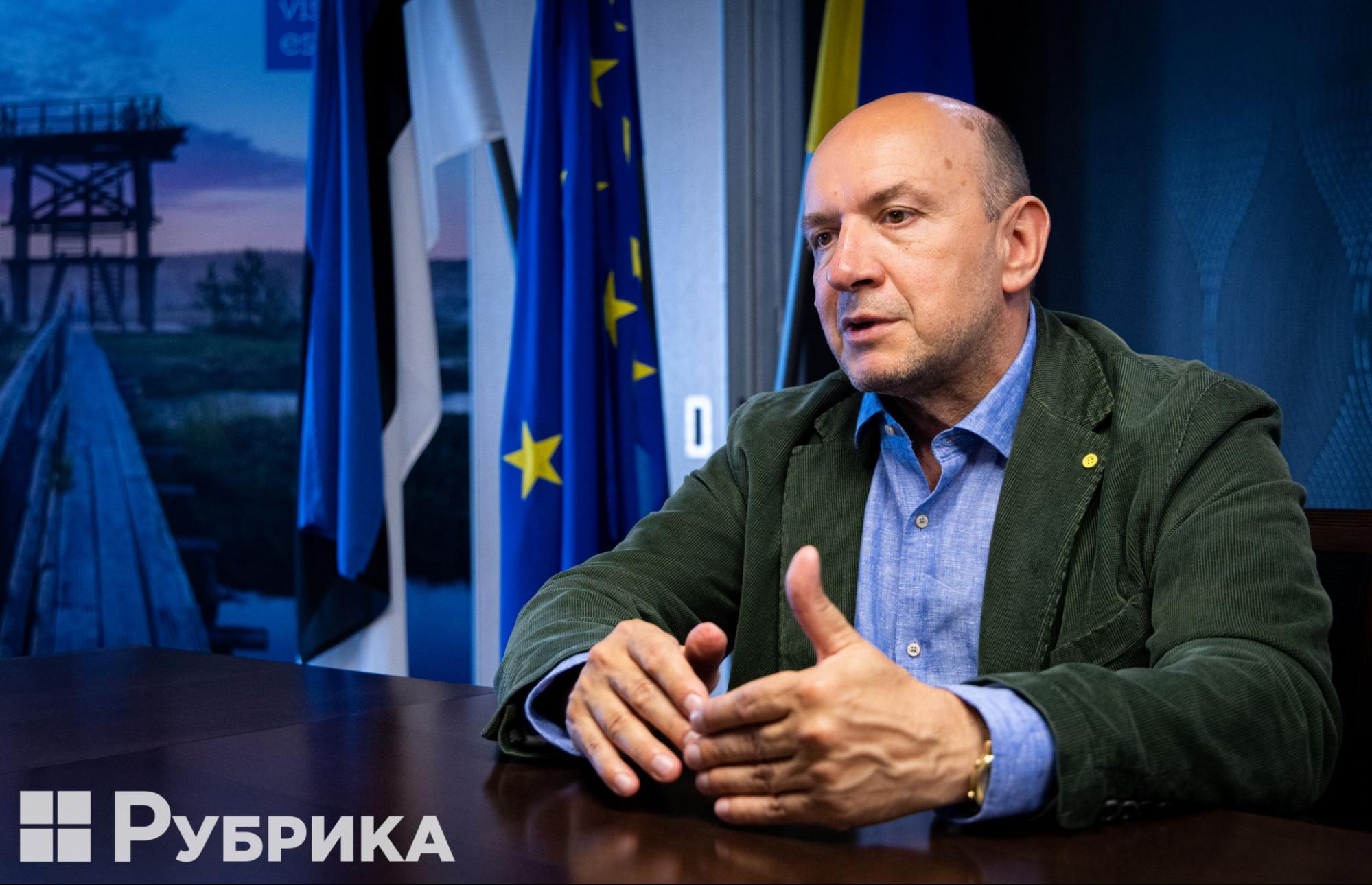
How far can Europe really go to uphold the idea that justice and accountability should win over the law of the jungle? Switzerland's high court recently decided that confiscating Russian assets in its banks was unconstitutional…
If there is a will, there is a way. So all these stories about "do we have procedures? is it lawful?" and so on… Yes, it would be lawful, if there is a political will to make Russia responsible to pay for this. All sorts of laws, covenants and procedures can be changed to use those assets for rebuilding Ukraine.
This aggression became possible mainly because of Russia's sense of impunity: "We're big, we have nuclear arms, we can do whatever we want. Nobody can punish us." This is the criminal mentality that they have – the bully mentality. Yes, we can punish them, and we will punish them.
On lessons from history
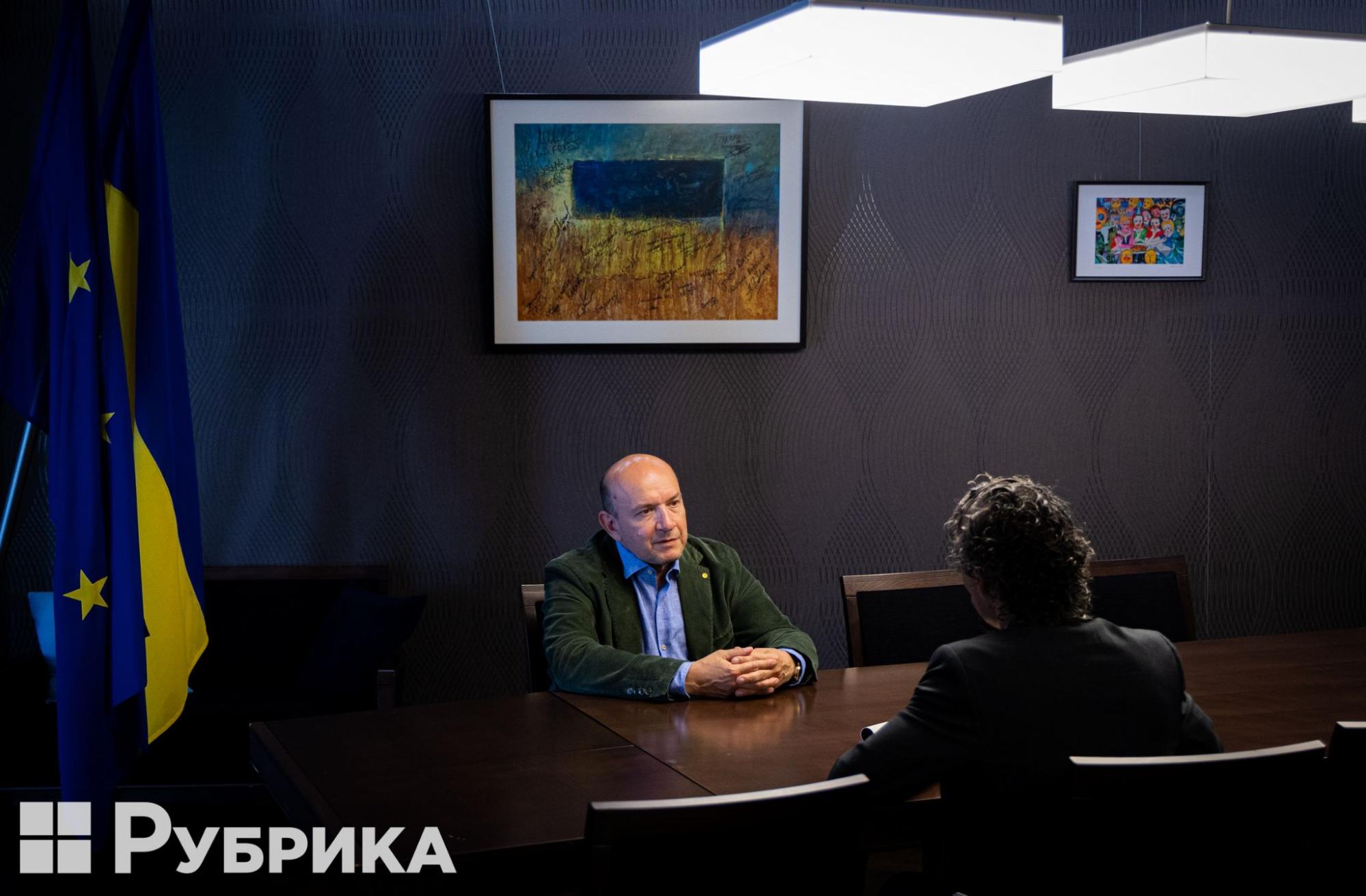
Russia's impunity certainly has been built up over the past few years. The world stood by and watched as Russia continued to drop bombs on civilians in Syria, or to continue to harass and invade its periphery. Why were we looking the other way then?
They got away – after they aggressed Georgia – with nothing. Very, very weak statements, condemnation. Even after 2014, yes, there were sanctions, but to be frank, those sanctions were more political, rather than practical. Tough sanctions started to be introduced only quite recently.
But this sense of impunity came also after the Nuremberg processes, where the Nazis were in the bench, but the Soviets — who committed terrible crimes against peoples in Central Eastern Europe, including the Baltic states — they were not sentenced. The Soviets were not sentenced for the mass killings and deportations of entire peoples and populations, and so on.
Why? Because they were the victorious – but they, too, were criminal. The Soviet system, the KGB and all that, they were basically as criminal as the Nazi regime. And, in essence, if you look at the substance of the two systems, they are the equivalent – just different ideologies. Totalitarian ones. So they were not in the batch. And after they acquired the nuclear weapons, the sense of impunity became far stronger.
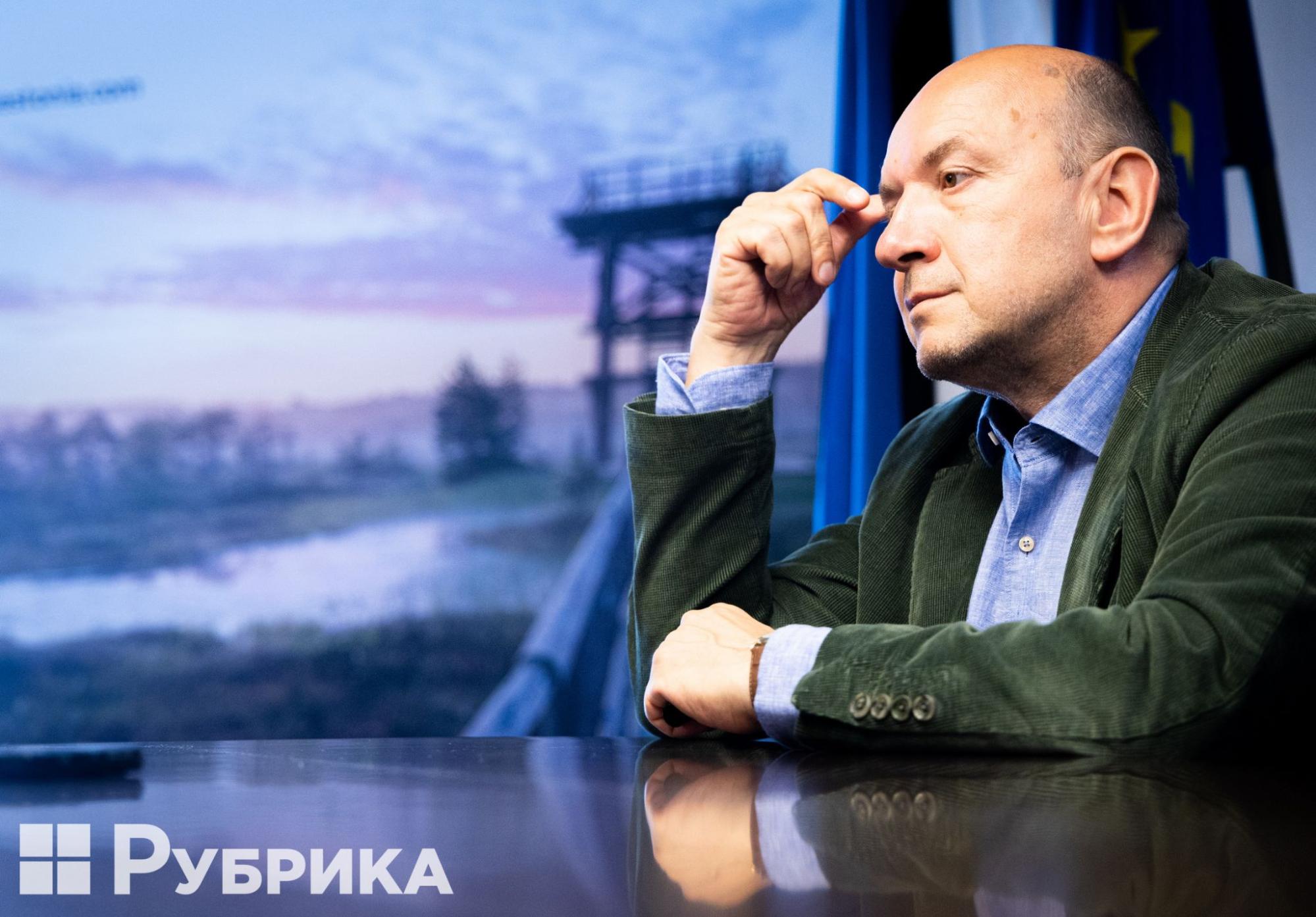
There's no doubt it's important to look back at history for lessons that we need today. What are they? Estonia and Ukraine got their independence around the same time, after the Soviet Union fell. What mistakes were made, and what could have been done differently in Ukraine?
My philosophy is usually such that if things could have gone differently, they would have gone differently. But they didn't. Certain factors precisely made this scenario the real one.
Of course, Ukraine could have started, and perhaps should have started many years before with, with an orange revolution and with reforms and so on. Perhaps Estonia was on the very forefront in early 90s, right after regaining independence, re-establishing independence. We made very, very quick and very tough, radical reforms. I don't know if such things could have been possible in a much bigger country in Ukraine in those days. So it all became possible later, perhaps that is the natural course of events.
One can say, "what if?" – but this is Whataboutism, in a way. So what if things would have been different? What if Russia would have been a different country too? We wouldn't have had all these troubles.
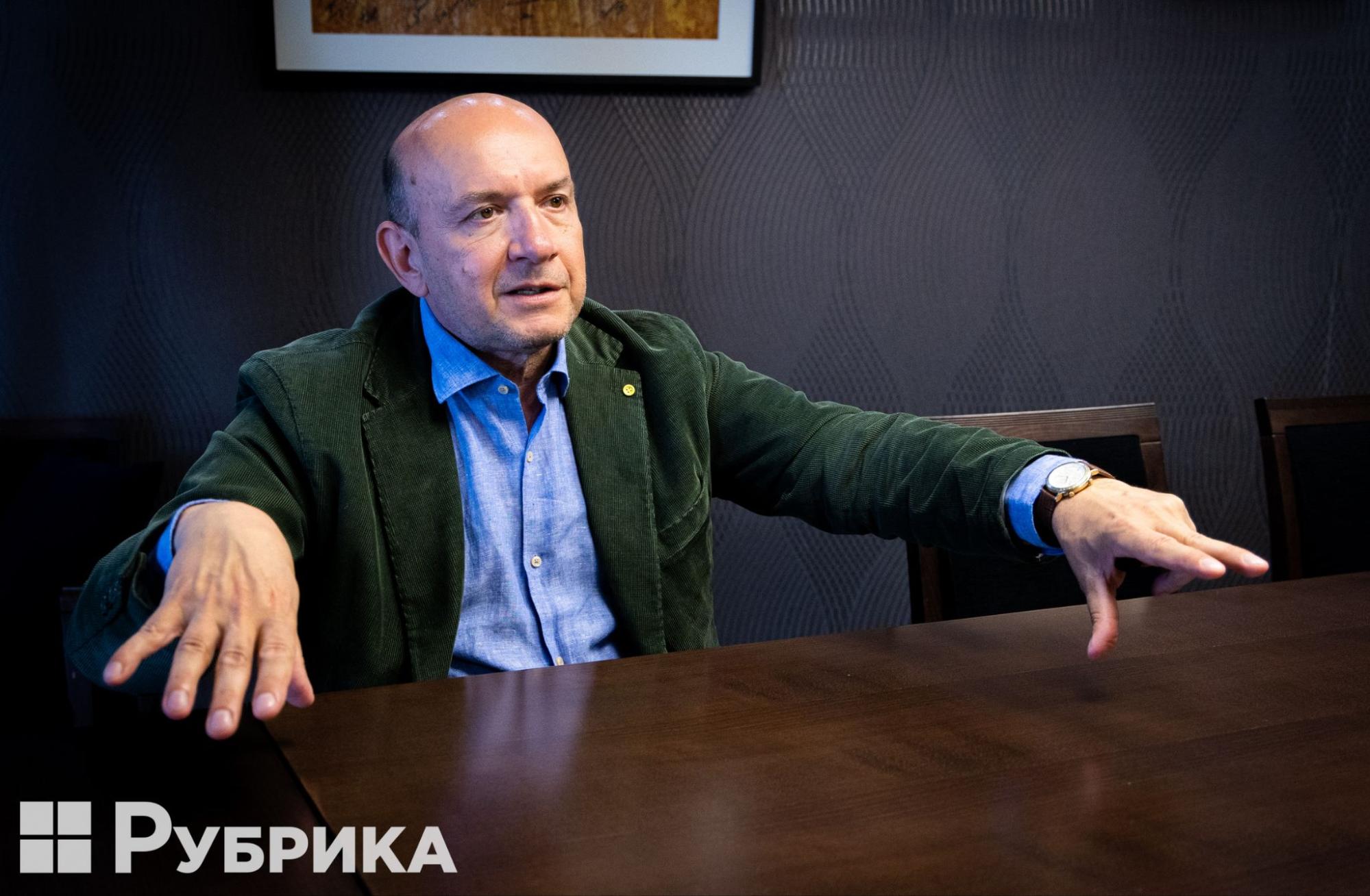
The problem with Russia is that, unfortunately, they don't live according to the common sense principle of "live and let others live." I mean, to be frank, if they would like to live like in North Korea, eating grass, I would be very sorry for them, but this is their choice. But the problem is that they don't want to live normally, and they can't, they don't want to let others who live around them live normally.
If they let us live as we want, there wouldn't be any problems. They always want to have a zone of dominance, a buffer zone or something like that around them that makes them feel secure and happy and so on.
They have a huge country, why don't they pull back, let's say, 500 kilometers from their own borders and create a huge buffer zone within their own territory, if they can't live without one? And why does this buffer zone have to be at our expense?
That is something I can't understand. They have the biggest country in the world, with the biggest territory – and it is still not enough. They still need more to take pieces from here and there, and invade countries. This is, unfortunately, something in their mentality that has to change.
Of course, one can always bring examples – how barbaric were the Germans, a cultured people, during the Second World War in the east, especially, and so on.
There are numerous examples in history. But come on, we live now in the 21st century. We really hoped that all these horrific things from the past would never come up again, while humankind has achieved unprecedented levels of development materially. If a people's mentality still remains at the level of the 14th or 13th century, right from the times of the Mongol yoke, then this is what we see, unfortunately.
On Russia and Russian mentality
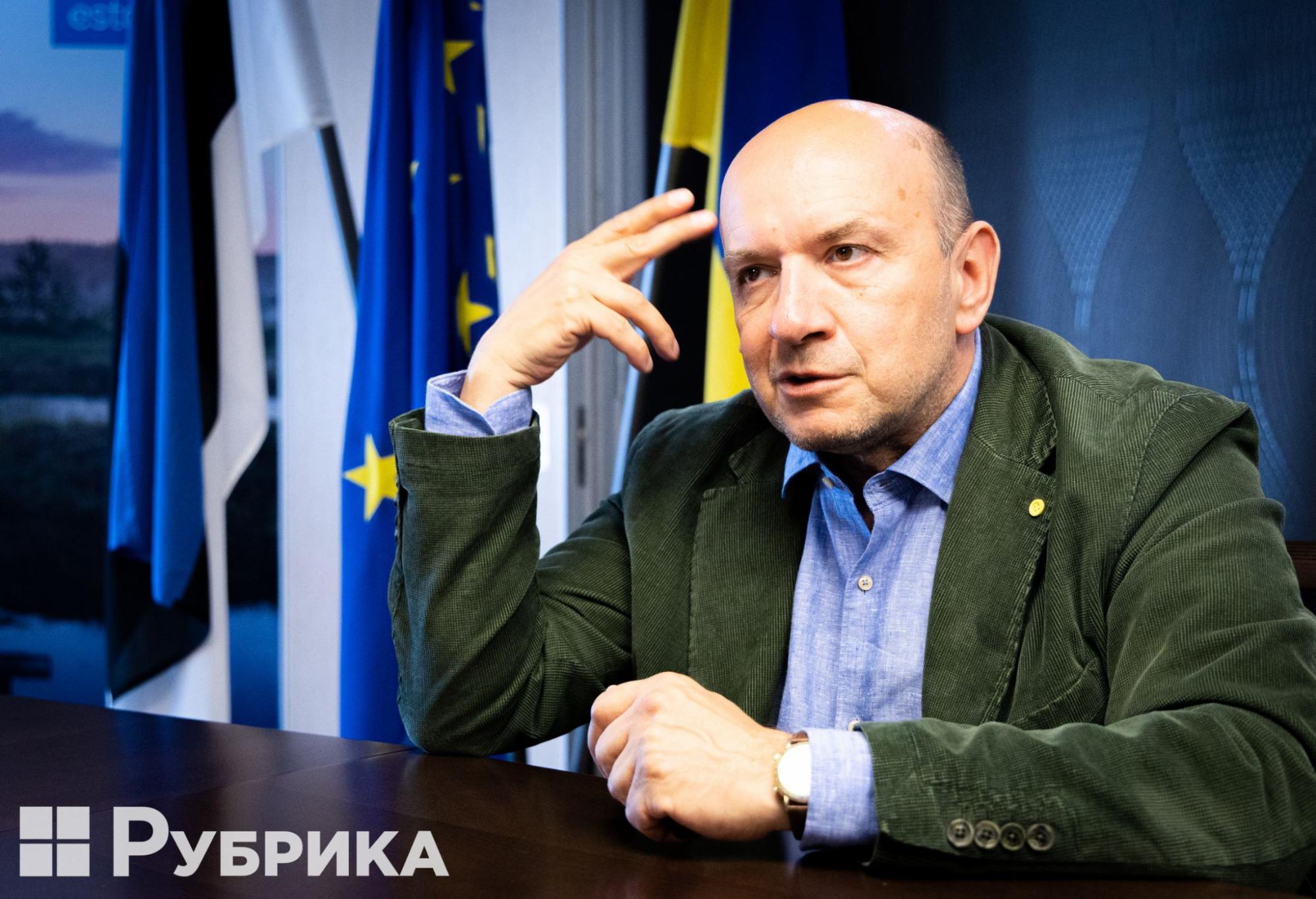
What is it about Russia and the mentality of the Russian people that they fail to see that?
It has to change fundamentally, because many speak in the West about Russia's modernization. But having the internet isn't modernization, or sufficiently nice roads, or Airbus airplanes, or oligarchs with huge yachts… This is not modernization – modernization is here – [in the mind, – ed.] – if their mentality is still from… I don't know which century, then they have not modernized, and this is the problem.
Even Peter the Great didn't want Russia and the Russians, the ordinary people, to modernize that much mentally, but with the facade, so to say materially, technologically.
And from that Russia has only modernized technologically, but not mentally. It has remained even outside the spread of the Renaissance in Europe. And you can see that it has a huge importance in the history of Europe. What are the values now of countries that were influenced by the Italian Renaissance, and the countries that were left in the dark outside? It's a huge cultural difference. This is history.
We as you would like to have normal relations with all neighbors – who wouldn't? But in this situation as we are, we have to spend 3% of our GDP on defense, for a small country it's a huge effort. We would like to spend at least half of that money on education, health care, and other stuff. But we have to spend on defense, and it's a pity, because we have to arm ourselves to the teeth in order to be able to defend ourselves against those hordes from the east, and we could do so many more useful things with those assets.
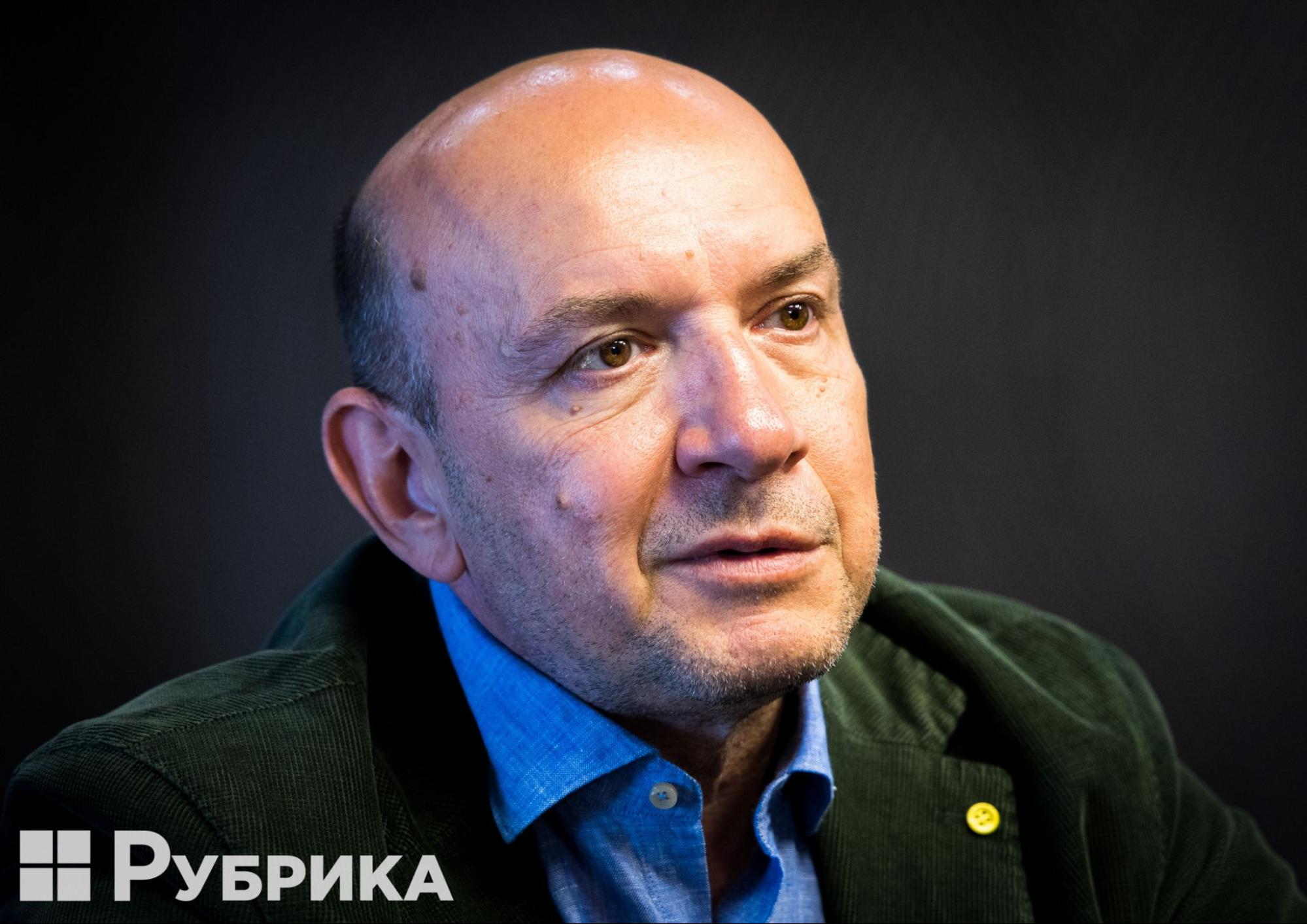
What do countries that don't share a border with Russia fail to understand about living with an existential threat from an aggressor?
This is too natural. The closer you are to Russia, the more you feel it. I mean, the closer you are to the North Pole, the colder it is, isn't it? And the further away you are, the warmer it is. So in a way with security and the distance from Russia is quite the same. You cannot have the same feeling about the Russian threat in Ukraine, Estonia, and Portugal, let's say.
But people who live in the safety of Europe or America don't feel the same responsibility to give up money for things like education and healthcare to send money to Ukraine. They're getting tired and wish the war would just be over.
Well, actually, they feel that way. And now that Russia has managed to awaken even countries like Finland, Germany and others who try to the very last possible moment to have a dialogue with Putin's Russia, and so on. After all that Russia has done in Ukraine, it is clear to everybody. I mean, Finland didn't join NATO just for nothing. I mean, Russia made it clear that if you're out of NATO, then sooner or later, you could be attacked by Russia.
This is precisely what has happened with Ukraine. If Ukraine had been in NATO, they wouldn't have never attacked.
I would say that the nuclear aspect is tremendously important here – because they say that NATO is a collective defense alliance. It's not just that it's a nuclear alliance – this is a nuclear umbrella. Basically, there are only two options living next to Russia in order to be secure – either you possess nuclear weapons yourself, or you are under a nuclear umbrella. And that's it. There is no third option. You tried the third option with the Budapest Memorandum and so on, and it didn't work.
So, I have to go, I'm very sorry.
Thank you for your time and for your work.
